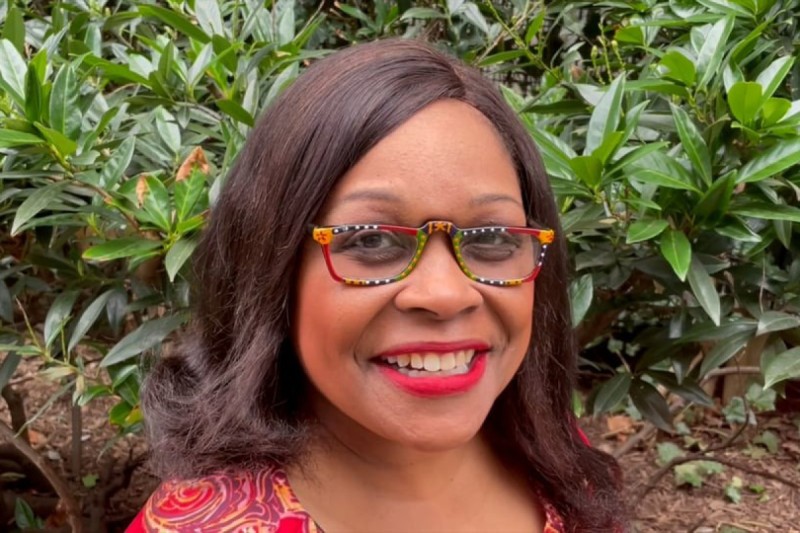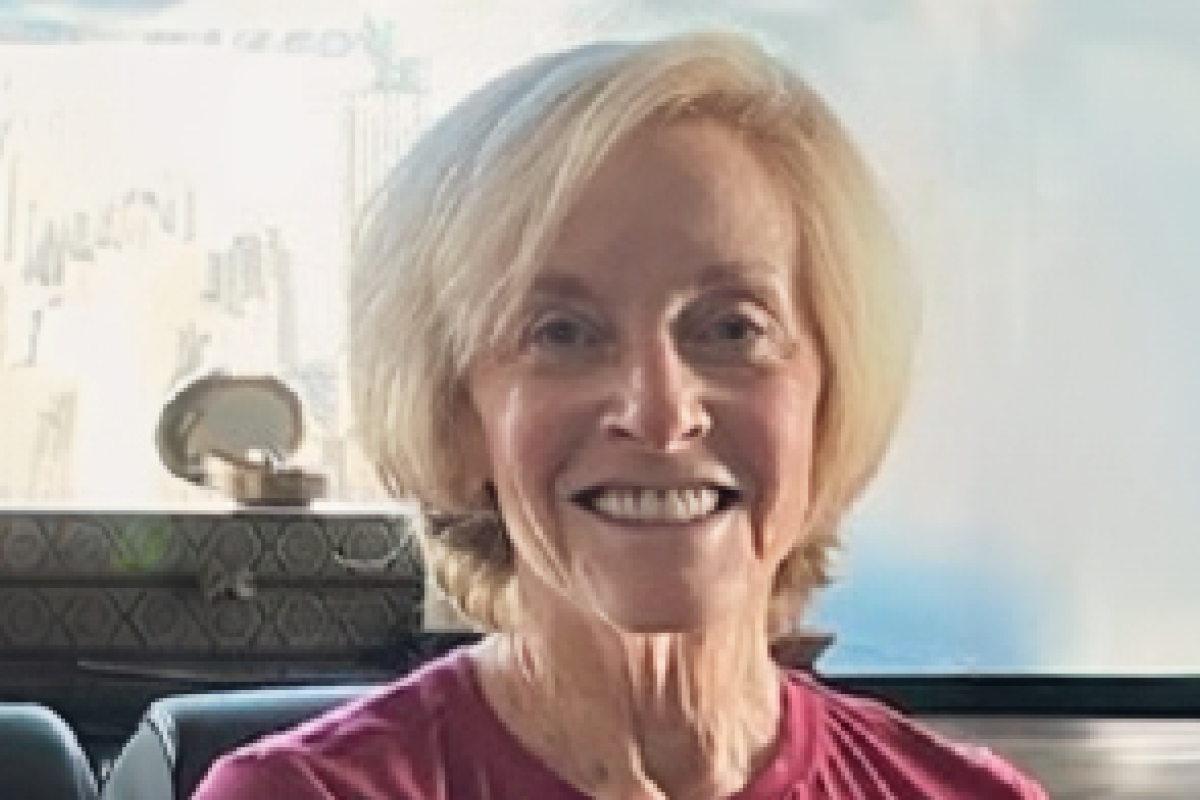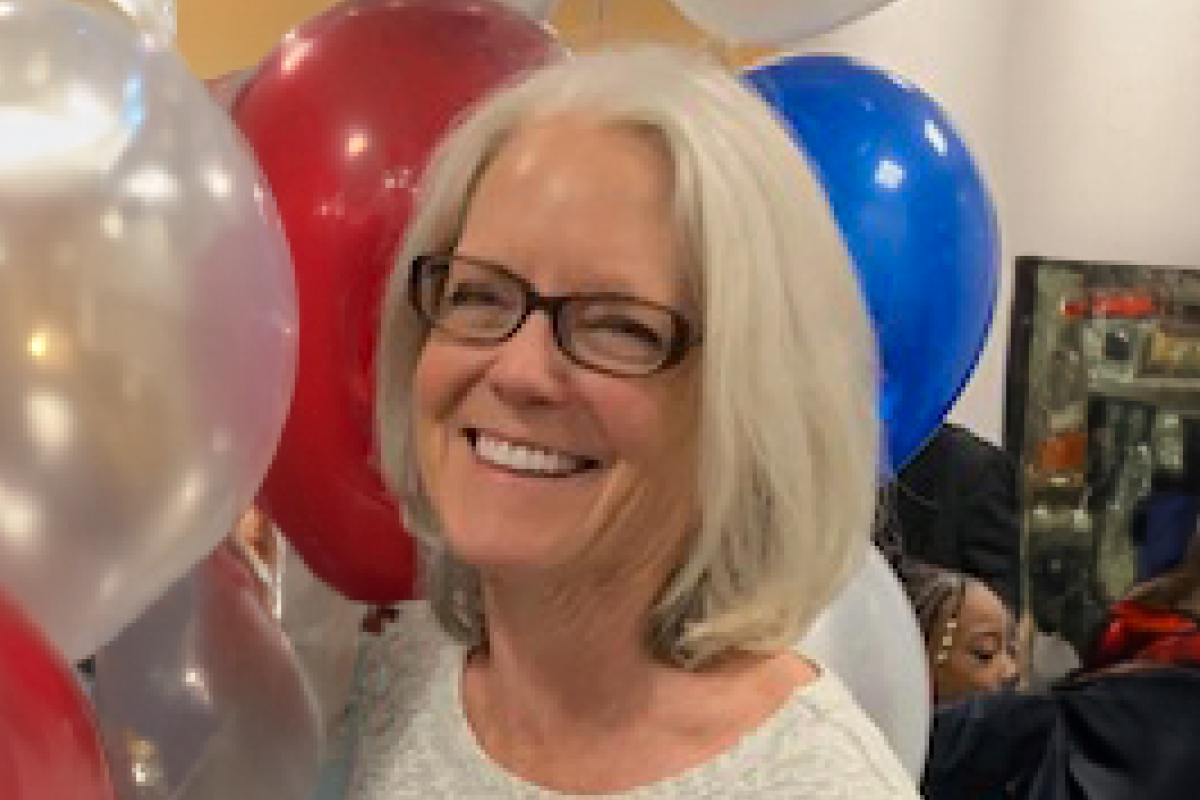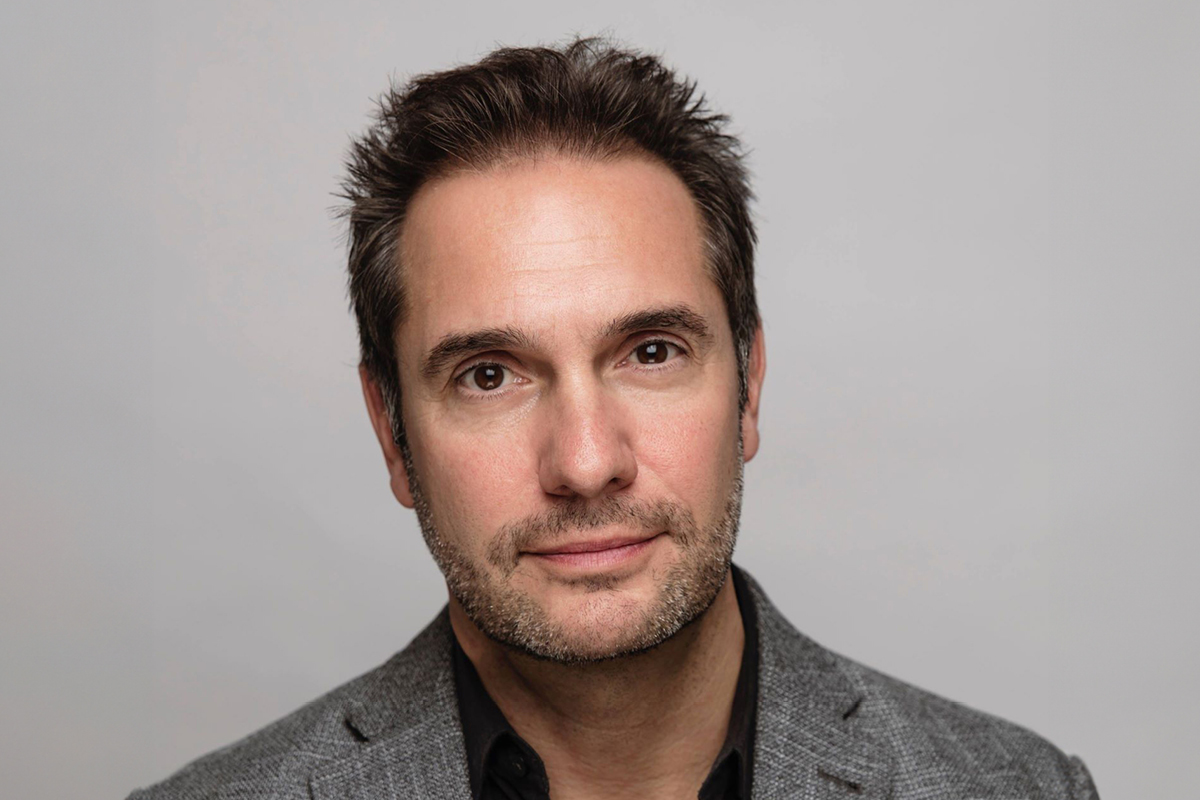
Lisa-Erika James joined the Visible Ink creative writing program at Memorial Sloan Kettering when she was diagnosed with breast cancer. "Visible Ink is such a champion for cancer patients and gives us a safe space where we are celebrated," she says.
- Over 3,000 people diagnosed with cancer have participated in Visible Ink.
- The program is free and open to MSK patients of any age
-
To join as a participant or mentor contact Judith Kelman at [email protected]
Next Performance: Monday, March 25, 2024
6:30 p.m.
Encore performance at 9:00 p.m.
Streaming exclusively at
https://tinyurl.com/VisibleInk2024
Lisa-Erika James admits, “I was very nervous and also excited on the night of the performance. I definitely had butterflies.”
A longtime teacher of theater, Lisa-Erika is usually the expert who helps performers calm their opening-night jitters.
But on this evening, she says with a laugh, “I wasn’t very good at taking my own advice” as she anxiously prepared to watch an acclaimed actress perform a deeply personal work that Lisa-Erika had written focusing on her own breast cancer diagnosis. A live audience tuned in from around the world.
The performance was part of a unique program called Visible Ink at Memorial Sloan Kettering Cancer Center (MSK) that has helped more than 3,000 people with cancer give voice to anything they want to express in writing, on any topic, in any form.
Participants are matched with highly accomplished volunteer mentors whose individual feedback and guidance helps patients craft essays, poems, songs, screenplays, podcasts, blogs, letters, fiction, comedy sketches, and other forms of creative expression.
Each year, Visible Ink publishes an anthology of works written by patients in the program.
Select pieces are also brought to life by professional actors, singers, dancers, and musicians from movies, TV, and Broadway in an annual performance. Along with a skilled production team, this troupe brings a high polish to work that runs the gamut from hauntingly beautiful to laugh-out-loud funny to raw and searing — including Lisa-Erika’s work, titled “Breasts.”
“After the double mastectomy, she would look at her body and miss her native breasts,” Lisa-Erika wrote. “She would look at her body with scars. She would look at her body with grief. She would look at her body and give thanks.”
No topic is off-limits, and works have addressed issues including coming out, female empowerment, racism, and much more.
“I feel honored to take part in something so special,” says Lisa-Erika. “Visible Ink is such a champion for cancer patients and gives us a safe space where we’re celebrated and can celebrate each other. It really is priceless.”
The Power of Self-Expression

Judith Kelman, a celebrated writer and journalist, founded MSK’s Visible Ink.
Giving cancer patients a platform to express themselves was Judith Kelman’s motivation when she founded Visible Ink at MSK in 2008.
A celebrated journalist and the author of 17 bestselling novels and four nonfiction books, Judith is intensely aware of the power of words — and the damage done by silence.
“When I was a teenager, a friend developed a terrible cancer,” she recalls. “This was during an era when nobody mentioned the word ‘cancer.’ ” As Judith’s writing career grew, she says, “It always bothered me that my friend was voiceless. I decided that giving patients the opportunity to write their stories would help them retain their sense of self-worth and creative abilities.”
She began the program 16 years ago and opened it to MSK patients of all ages, writing interests, and writing levels. The program is free of charge and supported by grants and donations.
Award-Winning Mentors in the Visible Ink Program
At first, Judith was the sole mentor, though many of her writer friends were eager to help. “I had no idea how many people would join. I never imagined we’d still be growing and going strong after 16 years,” she says.
Today, more than 250 mentors have volunteered to help guide patients in Visible Ink, including Tony- and Emmy Award-winning writers, New York Times bestselling authors, and writers from Vogue, Time, The New Yorker, Rolling Stone, Entertainment Weekly, Vanity Fair, and more.

Margie Smith Holt has mentored people in the Visible Ink program for over 10 years.
These mentors include Margie Smith Holt. An author and journalist, she enjoyed a long career as a television and newspaper reporter. In 2008 — the same year Judith started Visible Ink—Margie underwent treatment in Philadelphia for Hodgkin lymphoma.
“I wrote a blog about the whole experience and found it really helpful and cathartic,” Margie says. After treatment, she got married and moved to New York, where she searched for a program to help cancer patients through writing.
“I found Visible Ink, and it was perfect,” she says. “My very first conversation with Judith was so amazing. I was blown away by the program, and I’ve been a mentor for over 10 years now.”
Margie says that after working with many people in the program, she’s found that “some people want to write about cancer, and some really don’t want to talk about being sick — they look at the program as a useful escape.”
She continues, “I tell everyone their writing is a place where they can say whatever they want. Their work can be angry or scared. They can write things they don’t want to tell their family, and if they don’t want anyone to read it — including me — that’s OK.”
Margie finds that some participants appreciate being given “prompts,” or topic suggestions, to help get them started. Lisa-Erika, however, came to Margie with clear ideas about what she wanted to explore, based on writing she had already done.
“I didn’t do much to bring her piece along,” says Margie. “My hope was to give Lisa-Erika confidence, because what she already had was so good.”
Lisa-Erika insists Margie did more than she realized. “Margie was wonderful. I really appreciate how she helped me step back so I could better visualize and organize my thoughts.”
‘Let’s Put on a Show!’
Visible Ink took a bold step in its earliest days, says Judith, when she was introduced to Greg Kachejian, who became the program’s Artistic Director.

Show business veteran Greg Kachejian is Artistic Director of Visible Ink
For more than three decades, Greg has worked in film, television, and theater as an actor, writer, producer, and director. He was immediately struck by the power of Visible Ink to help people recognize that “just because you’re diagnosed with cancer, it doesn’t mean it’s your only narrative.”
With Greg’s help, the program staged a reading of work by participants. “We started with four actors,” Greg remembers of the early days in 2009. “I brought in more of my friends and expanded into music and dance. And before you know it, we’re doing shows with a cast of 40 people.”
The pandemic demanded a radical rethinking of the sold-out live performance that Visible Ink staged each year in a New York City theater. Judith and Greg decided to make short films of works by the participants, featuring an all-star cast, then stream the videos in a virtual performance.
This new approach, says Greg, “has meant incredible viewership, because we’re not limited to 600 people in a theater — we have people all over the world watching the performances.”

TV and theater actress Susan Spain has performed in Visible Ink productions for over a decade.
Lisa-Erika’s work “Breasts” was made into one of these short films, with her words spoken by actress Susan Spain. Susan has been featured in starring roles in TV and off-Broadway, and was intrigued when her friend Greg asked her to join in 2009. Every year since, she sets aside time to rehearse and perform in the Visible Ink production.
“I’m always so impressed with the impeccable writing,” she says. “We all feel it’s an honor to do this material, and we want to make sure we do it right.” She recalls that early on, a writer passed away before the live performance, but everyone agreed that the piece should be performed anyway, with the writer’s family in the audience.
“It was one of the most difficult performances in my life,” Susan recalls. “I wanted to make her proud and make her family proud of her and her work. We have that love and fire to make sure we give it our best.”
Lisa-Erika certainly feels Susan gave it her best in interpreting her work, which links the deeply felt joys and anxieties of adolescence with the realities of adulthood — including cancer. “She absolutely nailed it,” says Lisa-Erika of Susan’s performance that is by turns warm, slyly funny, and occasionally raw.
“Susan and all the performers put so much care and investment into this,” says Lisa-Erika. “It’s a privilege to see how Susan transformed my words.”
Creative Expression as Therapy
Judith and Greg are determined to help more people with cancer through Visible Ink. They cite the growing body of research — including studies conducted in conjunction with MSK’s Department of Psychiatry and Behavioral Sciences— that finds self-expression can have important therapeutic value for people facing cancer.
In recent years, Visible Ink has expanded from MSK into the New York City public health system. A pilot project at the Queens Cancer Center allowed the program to help an underserved community give voice to their stories.
The success of the pilot led to programs at Kings County Hospital Center and Coler Hospital Long-Term Care Facility on Roosevelt Island, including an alliance with the Reality Poets of OPEN DOORS, a network of Black and Brown artists, activists, and advocates motivated by community building, gun violence prevention, and disability rights. “Those guys are amazing, very powerful,” says Judith.
For Judith, after working closely with hundreds of cancer patients, a common theme has emerged from so many different experiences.
“Everybody who has a cancer diagnosis,” she says, “has a reckoning with the reality that something has happened that is out of their control.”
Visible Ink, she says, “gives people a situation where they are in complete control over whatever they want to write, whether it’s poetry, or a play, or a comedy sketch, or anything else. We help people feel in charge of their own story again.”